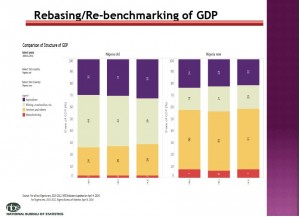It’s clear that I’m one of the slowest readers of Thomas Piketty’s [amazon_link id=”067443000X” target=”_blank” ]Capital in the 21st Century [/amazon_link]around – only a bit over half way through, when other reviews are pouring out. Most are adulatory; Paul Krugman’s in the New York Review of Books the latest (Why We’re In a New Gilded Age). The problem is the size of the book – I do most of my reading while travelling, and just can’t read long e-books, as nothing sticks.
Anyway, the process got me ferreting about in my old books looking for earlier work on wealth and inheritance, so this morning I was browsing through J.A.Hobson’s [amazon_link id=”1440087180″ target=”_blank” ]The Science of Wealth[/amazon_link] (1911) and Josiah Wedgwood’s [amazon_link id=”1245803719″ target=”_blank” ]The Economics of Inheritance[/amazon_link] (1929).
Here is Hobson on ‘unproductive surplus’:
“The plain facts of modern business show that capital like land can get a share of unproductive surplus. But while land takes its surplus by natural scarcity, capital takes its surplus by making itself scare ie. by artificially restricting the flow of free capital into certain channels of employment. These restrictions, whether maintained by securing advantages of of raw materials, power or situation, by tariffs or other State aid, by trade agreements or combinations, all signify checks upon the free entry of capital into a trade which is thus enabled to secure a scarcity rate of interest for a limited supply.”
He immediately identifies the banking industry as a key locus of unproductive surplus. No change there, then.
Wedgwood has a fascinating chapter on inheritance in which he uses probate records to trace the extent to which large fortunes are passed down the generations. The chapter sets out to test the assertion that most fortunes are self-made and quickly dissipated; “from clogs to clogs in three generations,” in the northern saying. The exercise reported in the book does not support this and in fact is entirely consistent with the results of another truly important recent book, Greg Clark’s [amazon_link id=”0691162549″ target=”_blank” ]The Son Also Rises[/amazon_link]. Wedgwood writes:
“The fortunes of the different branches were largely pre-determined by the economic position of the family at least five generations back and in to some extent by that of ancestors nine generations back.”
What Clark’s book establishes is that ‘patrimonial capitalism’ (in Piketty’s terminology) never really went away even in seemingly egalitarian societies like Scandinavia – around the world and over many different periods, advantage is passed on down the generations, and social mobility has never been all that great.
With hindsight, ignoring wealth and inheritance for a generation or two looks like another of the blind spots of 20th century economics. Even without finishing [amazon_link id=”067443000X” target=”_blank” ]Capital in the 21st Century[/amazon_link] (and I have some reservations about it), it is clear that Piketty, and his colleagues Emmanuel Saez and Tony Atkinson, have done us a great service in their careful collection of income and wealth inequality data. This VoxEUexplainer of the database is a good place to start.
[amazon_image id=”067443000X” link=”true” target=”_blank” size=”medium” ]Capital in the Twenty-First Century[/amazon_image] [amazon_image id=”1245803719″ link=”true” target=”_blank” size=”medium” ]The Economics Of Inheritance[/amazon_image] [amazon_image id=”1440087180″ link=”true” target=”_blank” size=”medium” ]The Science of Wealth (Classic Reprint)[/amazon_image] [amazon_image id=”0691162549″ link=”true” target=”_blank” size=”medium” ]The Son Also Rises: Surnames and the History of Social Mobility (The Princeton Economic History of the Western World)[/amazon_image]
A footnote: Hobson’s book has a wise note about the role of economics, concerning whether or not its conception of prosperity is too narrow, when what really matters is love, joy, meaning etc: “John Ruskin and some other prophets of this wider wealth have denied the validity and the utility of the narrower Political Economy. … Other students of society have also questioned the validity of separating the study of economic processes from that of other social processes and making of them a ‘science’ of industry. This criticism, in so far as it has a point, is applicable to all scientific specialism. The whole world of phenomena is a unity of intimately connected parts, and every breaking off of any section for separate study is of necessity an act of mutilation. But such separate studies are essential to intellectual progress, and the mutilation is not fatal to their use, provided the subject of special study is not treated as a completely rounded whole.” It’s healthy for economists to engage in interdisciplinary work as a reminder of this point. There are still too many of my fellow economists who’re dismissive of other social sciences.


